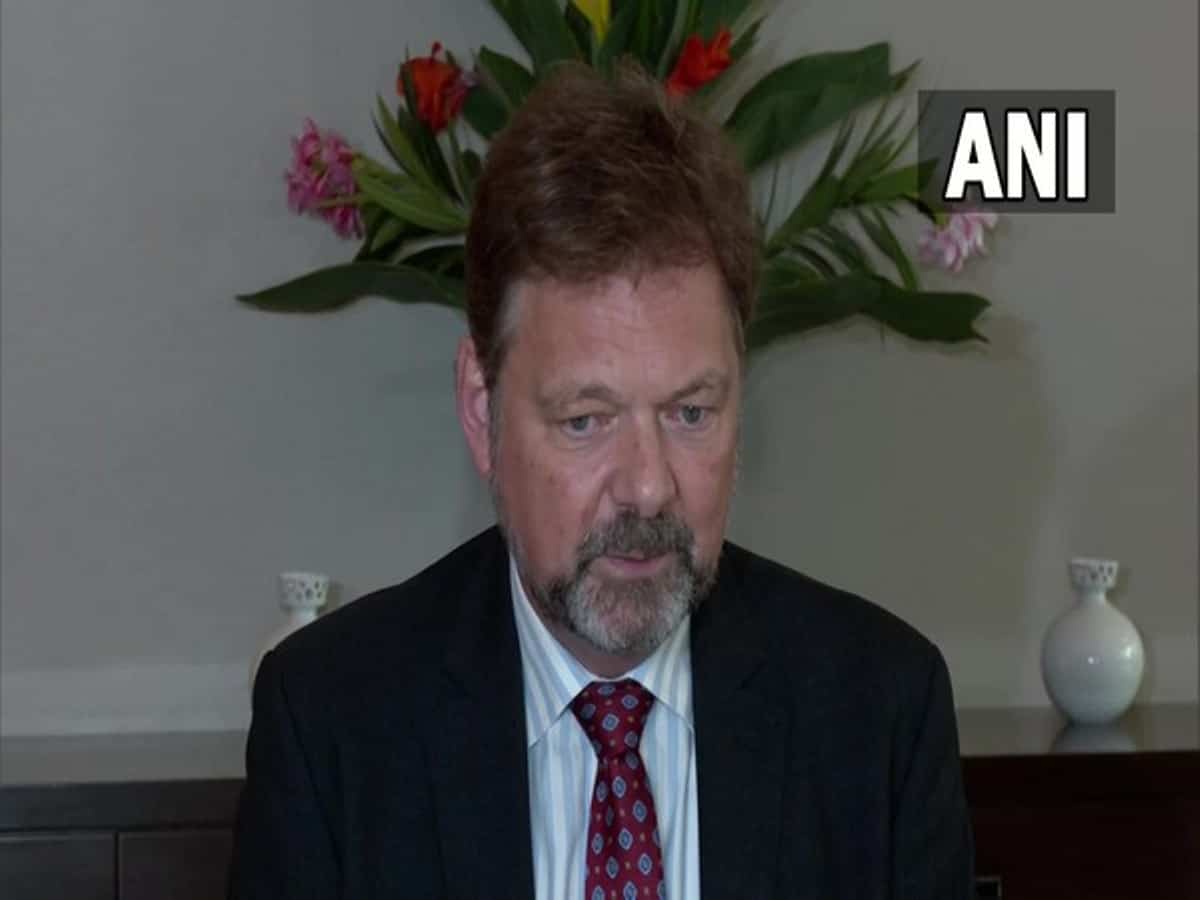
New Delhi: China’s claims over Arunachal Pradesh are “outrageous” and Chinese “infringements” along its border with India are “extremely difficult” matter which should not be accepted, German Ambassador Philipp Ackermann said on Tuesday.
In an interaction with the media, the newly-appointed envoy also noted that the problem at India’s border with China is different from the Russian attack on Ukraine and that the two issues should not be equated.
Ackermann’s comments came when asked about New Delhi’s contention that Europe’s reactions to violation of international law in Asia have often been muted while it reacts differently when it comes to problems in its region.
“We are aware of the Indian problem at its Northern border. We should not forget that China claims Arunachal Pradesh is its part. We see very clearly that the infringements at the (China-India) border is extremely difficult and should not be accepted,” the envoy said.
Ackermann said Beijing’s actions are a violation of international order but added that this issue was “completely different” from the Ukraine crisis.
“You should also differentiate that what happens at the border with China has nothing to do with what happens in Ukraine. China does not hold 20 percent of the Indian territory. China is not systematically destroying every village, every town in the area,” he said in response to a question.
The envoy said China’s claims over Arunachal Pradesh are “outrageous”.
On overall India-German ties, Ackermann said the new government in Berlin has a “clear shift” towards New Delhi as there is an enormous amount of possibilities to boost cooperation in areas such as trade, climate change, defence and technology.
When asked about the long-pending India-European Union free trade agreement, he said a “very ambitious” timeline has been set for it and the next round of negotiations, slated to be held soon, could see concrete work on the text of the pact and key measures.
Replying to a question on India’s concerns over some anti-India extremist elements operating from Germany, Ackermann said both sides have “intense cooperating” on issues relating to security and Berlin is cooperating to address issues flagged by New Delhi.
Ackermann welcomed India’s recent vote at the UN Security Council allowing the Ukrainian President to address the global body virtually, and described it as “progress” in New Delhi’s position.
He said India’s vote was a reflection of a “clear view” which was different from Russia which wanted to stop the Ukrainian President from speaking at the UN Security Council.
India rightly said that it is not a good decision, he said.
“I think the Indian side very well recognises the violation of international law (in Ukraine),” the envoy said about the Indian position on Ukraine.
Describing the Russian attack on Ukraine as the most serious aggression in the world since the German invasion of Poland in 1939, the envoy said he believed the Indian side also very well recognised that the Russian attack on Ukraine is a violation of international law.
Ackermann said India and Europe may not agree to “every single line” when it comes to the Ukraine crisis, but there was an understanding of the problem between the two sides.
On criticism that Europe’s response to problems in Asia is often muted, he said there is a Western angle to the problem in Ukraine, but added that the food crisis triggered by the crisis is not a European problem as it is affecting various countries around the world.
The German envoy said the Russian invasion of Ukraine has been a constant subject of discussion between Germany and India, adding it has a “manifold impact” including on food and energy security.
Ackermann said Russia has been playing around with energy supply to Germany and that Moscow has a contractual obligation to supply 20 percent gas to it.
Now they have stopped it for the last few days, he added.
Asked about the German foreign ministry’s critical comments last month following the arrest of fact-checker Mohammed Zubair, Ackermann said the two countries have a sophisticated partnership and discussions on such issues must be possible under such a framework of cooperation.
“Germany and India have a partnership that is so sophisticated and so granular to some context. In this context, free discussions must be possible,” he said.



